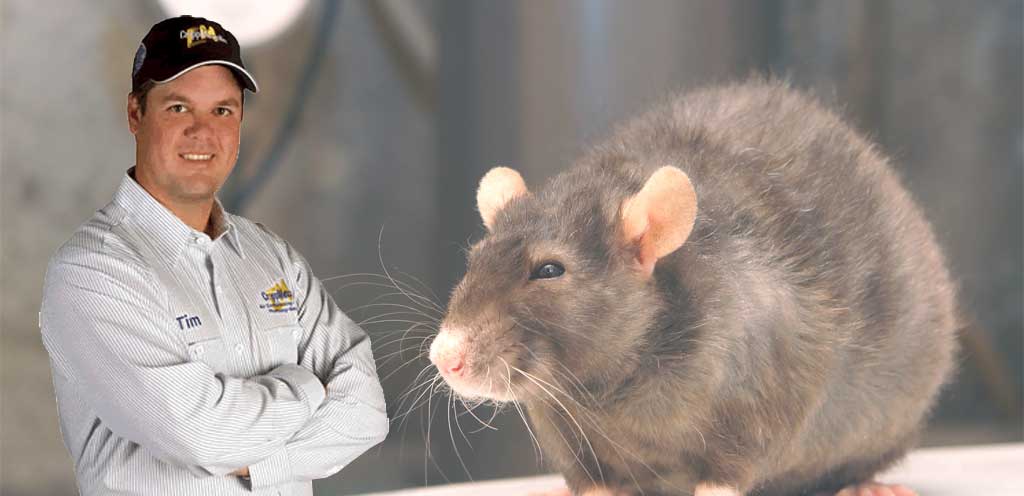Rodent Control and Rodent Removal

Oh Rats! Avoid Rodent Problems in Your D.C. Home or Business
While rodents can cause issues throughout the year, they’re especially prevalent pests in the colder months. The National Pest Management Association (NPMA) estimates rodents invade 21 million homes across the United States each winter. The crisp autumn and harsh winters in the Washington, D.C. metro area send mice, rats and other rodents searching for shelter and food indoors.
Unfortunately, rodents often carry bacteria with them, which means they can contaminate food sources and kitchen surfaces. According to the NPMA, mice and rats are known to spread more than 35 diseases.
Learn the signs of a rodent problem to know when it’s time to contact CroppMetcalfe for a free rodent inspection.
Signs of a rodent problem
Most rodents are active during the night, so that’s when you’re more likely to see or hear rodent activity. Be on the lookout for the following signs of a rodent problem in your house or business.
- Droppings left behind, especially in places where food is stored
- Strange noises, such as clawing or gnawing, coming from within walls and ceilings
- Gnaw marks on wires and pipes
- Grease tracks along walls and floorboards
- Chewed-up food packaging
- Shredded paper, fabric or other soft material, which could be used as a nest
Rodent prevention tips
Rodents enter buildings through small openings or cracks. In fact, mice can fit through spaces as small as a nickel! Take the following preventive steps to avoid a rodent infestation.
- Store food in airtight containers, including pet food. Don’t leave leftover pet food in the dish overnight.
- Keep garbage in heavy-duty containers with tight lids. If possible, don’t place your trash outside until your garbage collection day.
- Add door sweeps to exterior doors.
- Seal cracks and holes around the exterior of the home or business. Common access points for rodents include holes near cabinets, closets, windows and doors leading to the home exterior or crawlspace.
- Replace any loose weatherstripping.
- Store firewood at least 20 feet away from your home. The Norway rat, one of the most common D.C. rodents, is drawn to piles of wood.
- Keep trees and shrubbery trimmed back a few feet away from the house.
- Eliminate any sources of moisture, especially in crawlspaces and basements. Repair leaky pipes.
- Keep your kitchen clean! Rinse food and beverage containers before tossing them into the garbage or recycling bins. Wipe food scraps off of counters and the stove.
- Declutter your home, focusing on papers, fabric or any similar material that rodents could use for nesting.
Rodent control
Aside from the health problems, rodents can cause significant structural damage to your home or business by chewing through wood, piping insulation and electrical wires. Prevention tips and DIY pest control solutions only go so far.
If you live in Washington, D.C., Maryland or Northern Virginia and notice any signs of a rodent problem in your home, contact CroppMetcalfe to start a rodent removal plan immediately. Our certified pest control professionals, who have an average of 15 years of field experience, use the industry’s safest materials to eliminate pest problems and keep the rodents from returning. Contact us now.
CroppMetcalfe provides rodent control and removal services throughout the DMV, including: